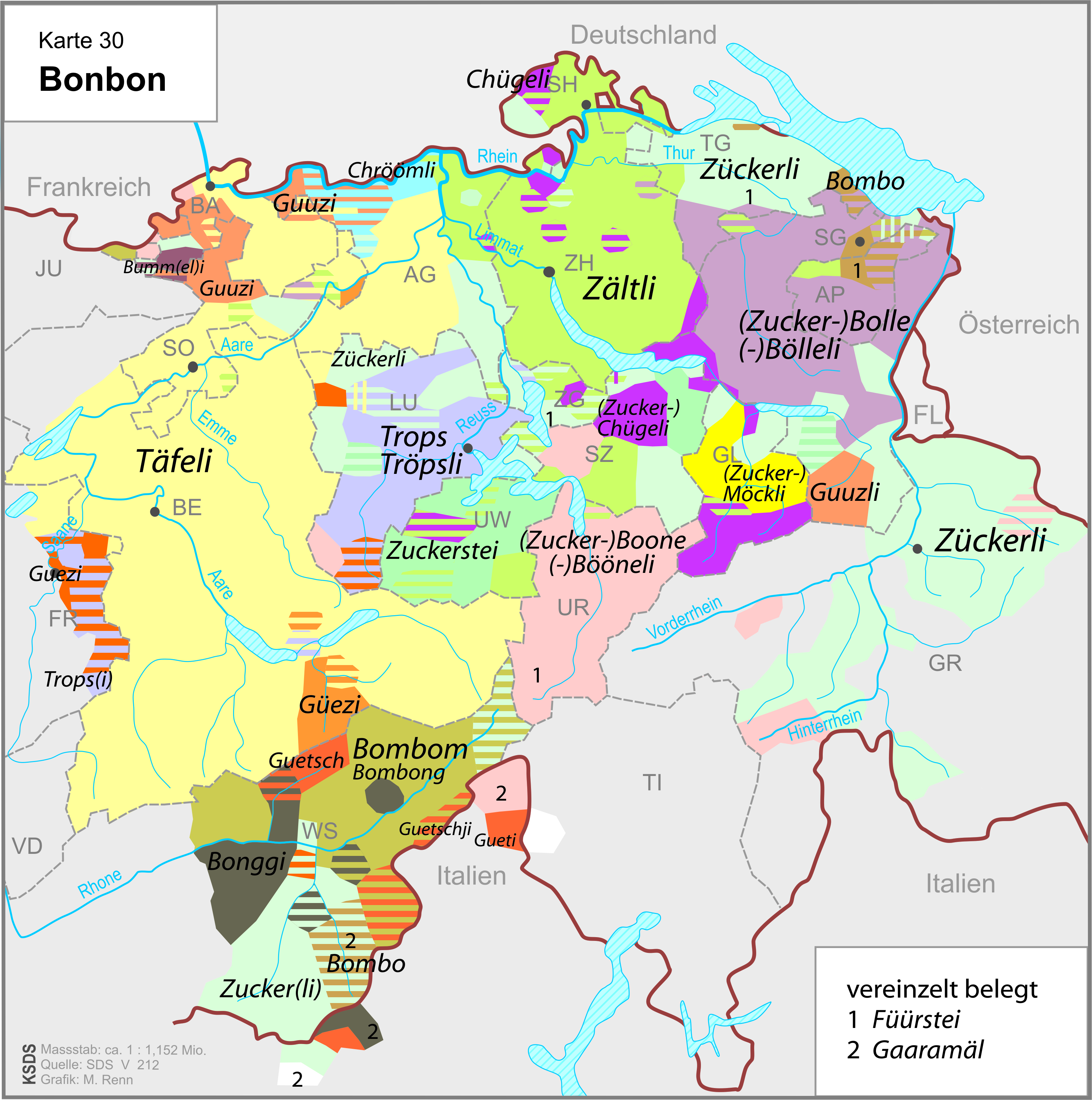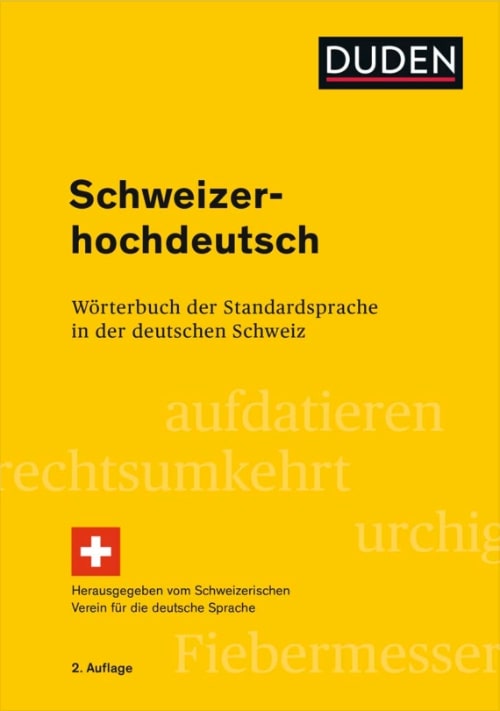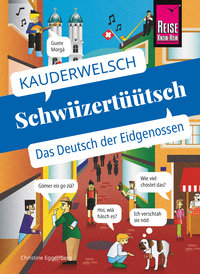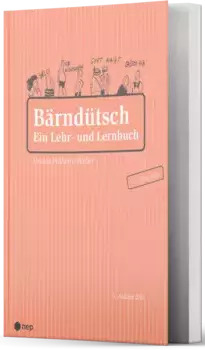Schweizerdeutsch
As it is generally known, there are 4 national languages in Switzerland: German, French, Italian and Romansh. The most widely spoken one is German. But not the German a lot of people are familiar with.
Swiss Standard German is one of 3 branches of Standard (High) German, in addition to Austrian and German. The main differences include -ss instead of ß (Gross vs. Groß), usage of different vocabulary with words borrowed from Italian or French (Natel, Velo, Trottoir) or Helvetismus - words and phrases specific to Swiss Standard German. But Swiss German is mostly a written, not a spoken language. The majority of conversations are held in one of many swiss-german dialects. And when I say many...

Source: kleinersprachatlas.ch
... I mean many. This map right here shows the different variants of how to say “Bombon”.
As someone who is proficient in Standard German, Swiss dialects are like a completely different language to me. I found the best way to understand the Swiss more is just to listen to them speak and ask when I don’t understand something. There are some other sources I’ve found that can be pretty useful when learning Swiss German. The first one are these Wikipedia articles about Swiss German, and Helvetism. They give a great overview of the differences between Standard German and Swiss Standard German.
For those that prefere videos, we can recommend YouTube from Langfocus, "How Different are Swiss German and Standard German?".

Additional resources we found
| Language | Type | Cover | Title | Link |
|---|---|---|---|---|
| Schwiizertüütsch | Book |  | Duden Schweizer Hochdeutsch Dictionary | shop.duden.de |
| Schwiizertüütsch | Book |  | Schwiizertüütsch - das Deutsch der Eidgenossen: Kauderwelsch-Sprachführer von Reise Know-How | amazon.de |
| Bärndütsch | Book |  | Bärndütsch (Neuauflage) von Ursula Pinheiro-Weber | hep-verlag.ch |
| Bärndütsch | Web |  | Bärndütsch.ch | baernduetsch.ch |
| Zürideutsch | Web |  | Zürichdeutsch für Anfänger:innen | zuerich.com |
Conclusion
But as for every language, the best practice you can get is, well, in practice. Listen and speak with the locals as much as you can and eventually you will get the hang of it.
Until you move to another Kanton.
If you have any further suggestions for useful resources for learning Swiss German, feel free to share. :)